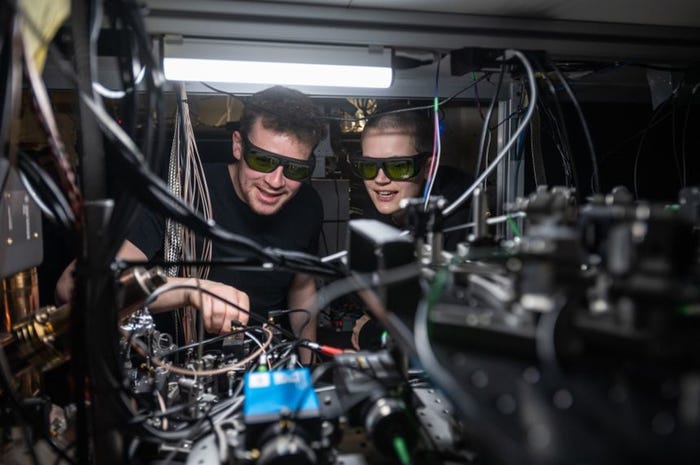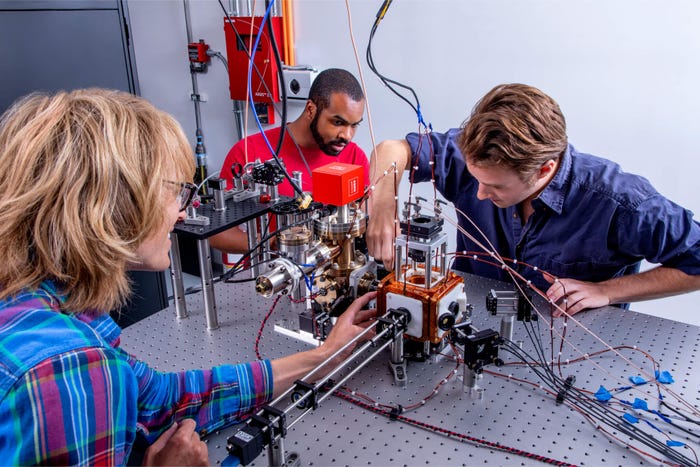
Connects decision-makers and solutions creators to what's next in quantum computing
Money Laundering Tackled by Quantum ComputingMoney Laundering Tackled by Quantum Computing
Innovate UK grant to fund a consortium developing quantum methods to prevent financial crime

Full-stack quantum-classical computing company Rigetti has received funding to apply quantum machine learning techniques to detect anomalies in banking transactions that may indicate money laundering activities.
Rigetti won the Innovate U.K. grant as part of the Feasibility Studies in Quantum Computing applications competition. The company will work in a consortium that includes HSBC, the University of Edinburgh’s Quantum Software Lab and the National Quantum Computing Center (NQCC).
Machine learning on classical computers is already used to detect money laundering by flagging suspicious transactions and adapting to changing criminal behavior. Quantum computing has the potential to enhance existing workflows and improve machine learning algorithms so they can detect unusual behavior that may indicate money laundering.
According to Rigetti, this project is an example of the practical industry use cases that deliver what it calls a narrow quantum advantage (NQA), defined as when quantum computing can solve a business problem better, faster or cheaper than a current classical solution.
“Achieving NQA is the next inflection point for our industry. Tackling a real-world problem like money laundering with quantum computing would advance our ability to offer financial customers quantum machine learning solutions that could provide a competitive advantage, and, in turn, accelerate the development of our hardware and software capabilities,” said Rigetti CEO Subodh Kulkarni.
HSBC is exploring quantum-hybrid applications to address optimization challenges for business impact and is testing quantum-secured communication. It is also already using machine learning techniques to detect anomalous customer behavior and believes improving its approach with quantum computing could improve its services and reduce risk.
“Applying quantum machine learning to detect fraudulent or criminal activity showcases the incredible opportunity this cutting-edge technology can bring to the financial services industry. We believe the depth of research expertise in quantum machine learning algorithms and quantum hardware execution brought by the University of Edinburgh, Rigetti Computing and the NQCC, combined with the industrial application breadth offered by HSBC, can bridge the gap between quantum research and industrial integration in the U.K.,” said HSBC quantum computing research scientist Mekena Metcalf.
About the Author
You May Also Like






